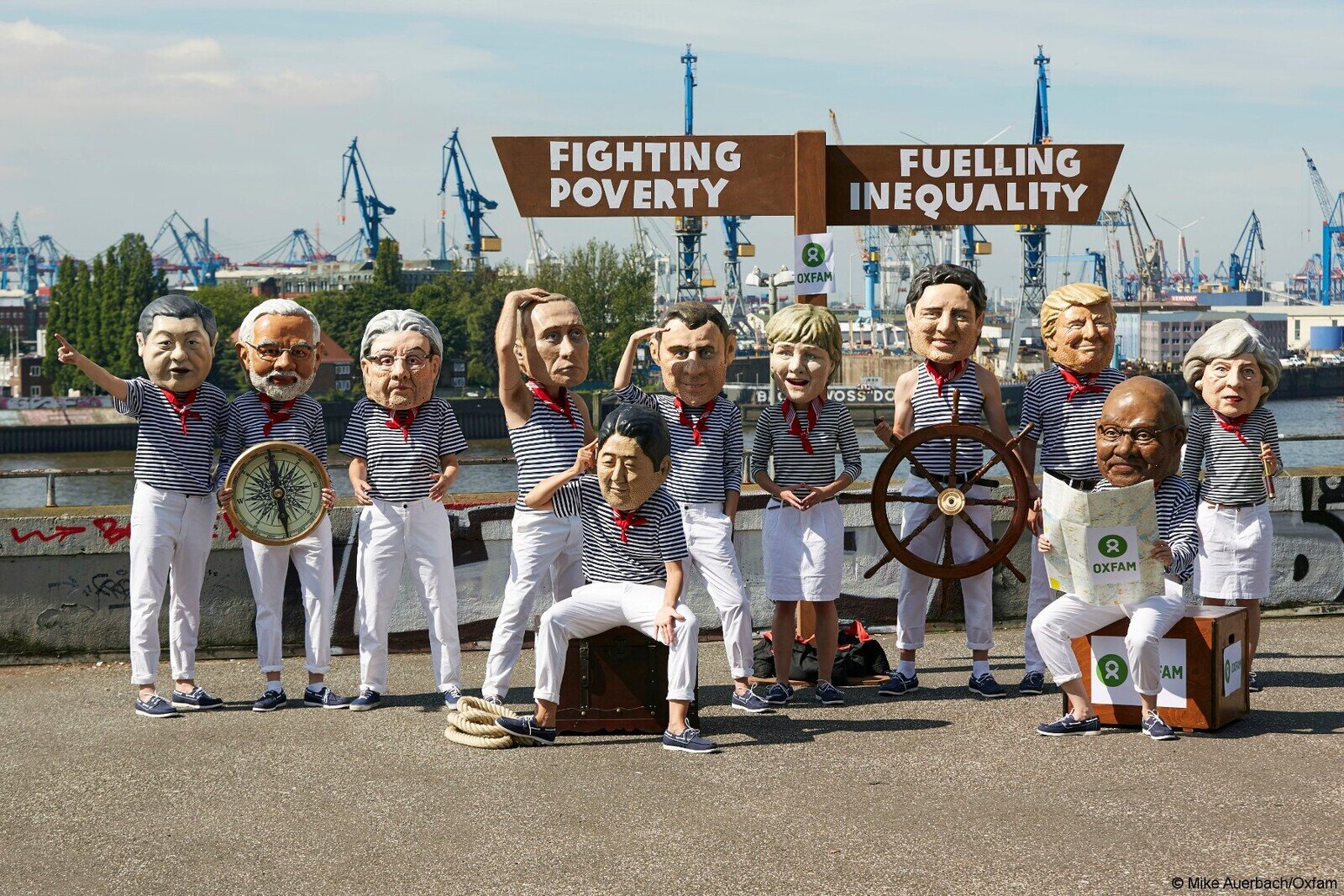2017年7月06日
Is this the year the G20 gets serious about inequality?(只有英文版)
Plus, three other questions ahead of Friday’s summit
The massive protests and demonstrations expected to take place around the G20 summit in Germany are a reaction to the huge economic and social inequalities afflicting the world, warned Oxfam, while urging leaders to agree on a comprehensive plan to tackle inequality.
“The G20 leaders will offer more warm words about the need to tackle inequality. But year after year they’ve failed to act. Just eight men now own as much wealth as half the world. Popular frustration with our broken economic system has been simmering for a long time, and it’s dangerously close to boiling over,” said Steve Price-Thomas, Oxfam’s Director for Advocacy and Campaigns.
“A country shouldn’t measure its economic health simply by how many jobs are created, without looking at the opportunities that these jobs really offer. We now see waged workers living below the poverty line while the super-rich stash their wealth in tax havens. This is money that should be spent on quality healthcare and education,” said Price-Thomas.
Will the G20 defend the Paris Agreement and commit to renewable energy?
With the G20 representing around 80 percent of the world’s greenhouse gas emissions, thousands are taking to the streets of Hamburg to demand action on climate change.
“Climate change is real and it’s happening right now. In the aftermath of President Trump’s decision to quit the Paris Agreement, it’s up to the rest of the G20 countries to honor and implement the deal,” said Price-Thomas.
“Fossil fuels are not the future. While government subsidies for oil and coal only make the rich richer, the clean energy boom is creating opportunities for everyone. We’ve seen some of the poorest countries in the world commit to 100 percent clean and renewable energy by 2050; the G20 should follow their lead.”
Will leaders confront the unprecedented threat of four simultaneous famines?
The jaw-dropping disparity between the world’s richest and poorest is always on display at major summits like these. This year it’s even more appalling given the deadly hunger crises currently plaguing South Sudan, Yemen, Nigeria and Somalia. Oxfam is calling on the G20 to do their part in funding the UN’s $6.3 billion appeal. Currently, the only countries attending the summit that have paid their fair share are the United Kingdom, Germany and the Netherlands.
“We can’t stress this enough: political failure has led to this crisis, and political leadership is needed to resolve it,” said Price-Thomas. “The relief from emergency aid will be short-lived if the G20 fails to push for peaceful solutions to the violence and conflicts that have caused so much death and suffering.”
Can the “Compact with Africa” really deliver for the continent’s poorest?
Germany’s chancellor, Angela Merkel, has been active in promoting the “Compact with Africa” as a way for G20 to boost private investment in African countries to help reduce poverty. However, Oxfam remains cautious about the initiative’s focus on government and business elites, seemingly at the expense of people in poverty.
“Private investment doesn’t automatically help local communities or lead to sustainable growth,” said Price-Thomas. “The G20 should acknowledge that public finance is still sorely needed to help these countries meet the Sustainable Development Goals.”
- Ends -

